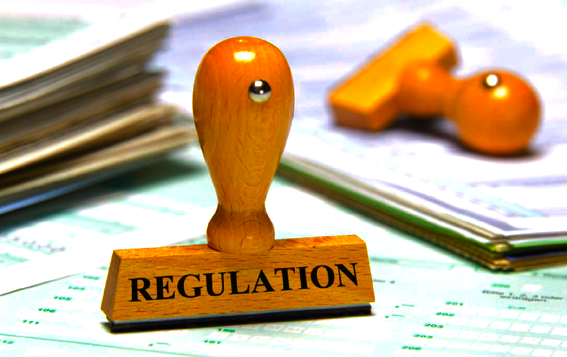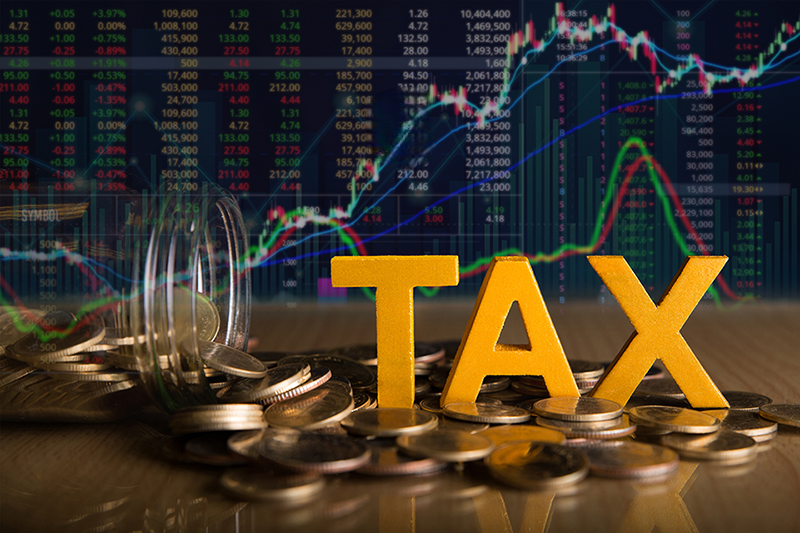- Summary:
- Forex Trading is a $7 trillion-a day industry, impact on the global economy and FX investors. Which countries offer the best environment?
Table of Contents
- Best 5 Countries for Forex Trading and Forex Regulations
- 1. Switzerland
- Forex regulation
- Living Standards
- Taxes
- 2. New Zealand
- Forex Regulations
- Living Standards
- Taxation
- 3. Singapore
- Forex Regulations
- Living Standards
- Taxation
- 4. United Arab Emirates
- Forex Regulations
- Living Standards
- Taxation
- 5. Malta
- Forex regulations
- Living Standards
- Taxation
- Conclusion
One advantage of forex trading is that it can be done anywhere in the world and at any time. With a laptop, smartphone and good internet connection, you can make consistent profit and achieve a good lifestyle. But due to certain regulations and other economic factors, some countries are a lot more attractive to forex traders than others.
These countries offer better cost of living, better forex regulations, broadband speed, and tax policies. Here is a list of the best countries forex traders find attractive for trading activities.
If you, like many of our readers, are from either the US or the UK, we’ll refer you to another article to get a better understanding of your forex taxation.

Best 5 Countries for Forex Trading and Forex Regulations
These are the best countries for forex traders:
1. Switzerland
With its well-established financial and service sectors, Switzerland is one of the best countries for forex traders. The country is famous for its private banking system and has one of the most stable economies in the world, perfect for trading activities. The Swiss franc is a safe haven in periods of uncertainty because the Swiss National Bank is heavily involved in the forex market to keep the price of the currency in a tight range.
Forex regulation
Due to the heavy involvement of the Swiss National Bank in the forex market, there are strict regulations regarding forex trading. To protect forex traders, only regulated and licensed brokers are allowed to operate, and their activities are strictly monitored.
Forex brokers operating in Switzerland have to register as banks with no conflict of interest with their customers. In addition, all Swiss brokers are allowed to provide services to European Union residents since Switzerland is part of the European Economic Area.
As a result, Swiss brokers have been involved in far fewer scams and scandals compared to brokers in countries like the UK, the US, and Germany. However, traders are subject to larger minimum deposit amounts and higher minimum margin requirements.
Living Standards
Switzerland has a relatively high standard of living and is a popular travel destination for expats. Cities in Switzerland are among the most expensive places to live in, majorly due to rent prices. It costs around 3500 Swiss Franc ($3885) for a single person to live there, making it the fourth most expensive country in the world. But if you choose to live outside the cities, the cost of living can drop exponentially.
The country has one of the lowest crime rates in the world, and its broadband speed is extremely fast, with an average speed of 222Mbps.
Taxes
Like other income earners, forex traders are subject to taxation on profitable forex trades. The amount of forex trading tax paid by traders in Switzerland depends on whether the individual is a private investor or a professional one.
Private investors do not have to pay any tax on their gains, but there are certain requirements to be met to be considered a private investor:
- Capital gains amount is less than half of a person’s net income.
- Total trading volume is not greater than 5 times the amount of the total value of an individual’s securities at the start of a tax year.
- You hold securities for more than 6 months.
- Individuals can invest with their own assets.
2. New Zealand
New Zealand is another country popular with forex traders because of its relatively stable but small economy. It is one of the most business-friendly countries in the world and is an attractive environment for forex traders.
Forex Regulations
Forex brokers who operate in the country are regulated by the Financial Markets Authority. Before they can offer services to clients, brokerage firms must acquire authorization from the FMA. Once the license is granted these brokers and be under constant monitoring to ensure that they carry out their business legitimately.

If a broker disobeys the regulations set aside, they will face fines and in serious cases, have their licenses revoked. Since brokers can influence the trading activities of forex traders, this is a way for the country to protect and safeguard the investments of traders.
Forex trading in New Zealand is also regulated by the Financial Service Providers Register (FSPR) and the Financial Services Complaints Organization (FSCL). Both brokers and private traders are allowed to file complaints, suggestions, and claims to these organizations if they are wronged.
Living Standards
The cost of living in New Zealand is not high compared to other countries with a good standard of living. It would cost a single person NZ$3696 ($2657), and the internet connection in the country is impressive.
The average broadband speed lands at 264.16Mbps, meaning traders never have to worry about losing connection when trading. Plus, the country is safe with a low crime and corruption rate.
Taxation
Forex traders are expected to pay tax on their income, and the tax rates fall between 10.5% to 39%. All residents are expected to pay income tax depending on their income, and this could come up to 33c for every dollar earned. However, forex traders are not expected to pay capital gains tax.
3. Singapore
Singapore is a country that has seen a significant increase in forex trading because of the government’s approach towards trading. It has established its position as the financial centre of Southeast Asia because Singapore is one of the few countries in the area that allow forex trading.
Forex Regulations
Forex activities in the country are regulated by the Monetary Authority of Singapore, but there are no strict government restrictions. The rules are in place to avoid scam scandals, corruption, and financial malpractice.
All brokers operating in the country have to obtain a license from MAS before they can offer services to clients. These brokers go through a series of examinations to determine if they have enough capital to cover any possible losses.
Brokers must also show that the company’s account is different from that created for their clients. This offers an extra layer of protection as the company cannot misappropriate clients’ funds, and the accounts cannot easily be breached.
Once they are in operation, brokerage firms are constantly monitored by the agency, and they have to produce regular audit reports to show that they are following all the requirements or will face disciplinary action. Any broker operating without a license from the authority could be banned from the country.
Traders working with MAS-registered brokers can be assured that their funds are protected because the laws are geared towards promoting stability.
Living Standards
Singapore is becoming a go-to destination for forex traders. The Standard of living is high, but the cost of living isn’t cheap either. A single person could spend around S$5003 ($3708) a month. However, living here allows you to prepare for and trade different forex trading sessions.
The country has a relatively low crime rate, and the broadband connection is fast, operating around 262.2 Mbps. Rental prices are quite high in the city areas but are considerably lower in other parts of the country.
Taxation

Part-time forex traders can enjoy tax-free profits as brokers do not make any deductions as taxes. But full-time forex traders are required by law to declare their income and pay taxes on it.
But forex tax regulations in Singapore are not clear cut, especially for those using international payment methods. For instance, traders using platforms like Paypal and WebMoney may not be taxed unless their money is transferred to a local bank account. So, it is important to seek professional tax advice when trading in Singapore.
4. United Arab Emirates
UAE offers countless opportunities for forex traders and brokers, and it serves as the base for many trading activities. Plus, the country has a strong economy, and it is the third richest country in the world. The Emirati Dirham can act as a safe haven when the forex market is fluctuating.
Forex Regulations
Forex trading is fully legal in the UAE, with little to no restrictions placed on activities. Forex brokers operating within the country are regulated by the Central Bank of the United Arab Emirates, and their licenses are issued by the Securities and Commodities Authority.
These brokerage firms need to meet certain criteria before they can be registered in the country. For one, a brokerage must be owned by a citizen of the UAE and have a minimum of $8.2 million in operating capital.
Living Standards
Despite being one of the richest countries in the world, the cost of living in the UAE is relatively low. A single person could spend $1660 a month comfortably, and it is one of the safest countries in the world.
Internet speed in the country is among the best in the world and operates at an average of 247.7 Mbps. Having a strong internet connection greatly improves your trading accuracy as you can move in and out of the market quickly and retain profits or limit losses.
Taxation
Many successful forex traders are based in the UAE because gains made from forex trading are tax-free for UAE residents. UAE doesn’t impose any income tax or capital gains tax on its residents, making it an excellent destination for forex traders.
5. Malta
Malta’s forex market has experienced exponential growth over the past couple of years. Its growth is primarily due to the business-friendly tax structure and low cost of living compared to other European countries.
Forex regulations
All brokerage firms operating in Malta are regulated by the Malta Financial Services Authority (MFSA). International brokers that are not authorized by MFSA are intensely scrutinized, and it is illegal for companies to operate without a license.
Living Standards
The cost of living in Malta is cheaper than 68% of countries in Western Europe. The cost of living for a single person could cost around $2331 per month.
The crime rate in the country is relatively low, and the broadband speed operates at an average of 117.68 Mbps.
Taxation
Malta is attractive to forex brokers and traders because of their attractive tax system. Capital gains tax is levied at a flat rate of 12% of the selling price. Non-residents will have to pay tax on income made in Malta.
Conclusion
The best country for forex trading depends on the trader’s unique circumstances and needs. However, other factors like the stability of the country’s economy, availability of services and infrastructure can affect the decision of a trader.
So, before moving to a country, go on a vacation there first and test it out to see if it will be the best fit for you.


